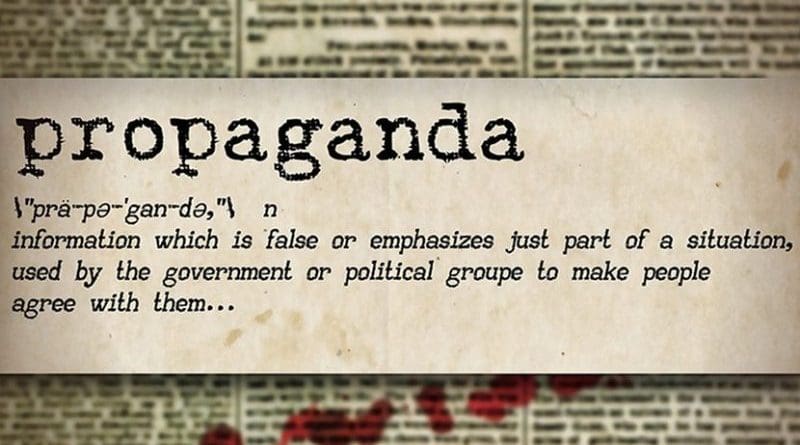Putin Propaganda Far More Effective Abroad Than Its Soviet Predecessor Ever Was – OpEd
By Paul Goble
Russian internet analyst Semyon Kogan asked his readers to say why Putin’s propaganda works so much better than its Soviet predecessor both at home and abroad. They were almost unanimous in saying that domestically, this is the result of vast social and political changes. Three of their responses about its foreign impact are more interesting.
One of them from Vladimir Gumovsky, not further identified, argues that the success of Russian propaganda today is only relative and has been achieved only because of the weakness of Western versions (newizv.ru/article/general/20-12-2022/nichto-ne-istinno-i-vse-dozvoleno-v-chem-sekret-uspeha-rossiyskoy-propagandy).
According to him, this in turn reflects the fact that “even ‘experts’ in the West are very weakly informed about the real situation of affairs in Eastern Europe in general and in the Russian Federation in particular, the total lack of trust” there in Western media, “and the passionate desire of some Western people to see an alternative” to their own situation.
A second respondent, analyst Klim Tuyev, argues that in fact what is happening is “completely logical.” According to him, Putin’s effort has benefited from the intellectual competition that had ruled in Russia before him and that led to the elaboration of themes like the defense of tradition and the white race which have great attraction beyond Russia’s borders.
He says that this represents a stark contrast with the West. “Soviet propaganda was formed in a stupid fashion and was always limited to ideological strictures” that were easy for outsiders to dismiss.
And a third respondent, analyst Konstantin Kim, points to an even deeper reason for the success of Putin’s propaganda in the West: his system like the systems of Western countries are post-modernist formations. Neither is constrained by ideology or rationality, and so Moscow can say things that speak to many in the West rather than striking positions unlikely to win support.
In this, Kim says, “the Russian regime is just like modern Russian regimes, a product of post-modernism” in which “there is no hierarchy of information, logic is viewed as opportunistic and self-interested,” and conscience can be dispensed with. “Nothing is true and everything is permitted,” an environment in which Putin is far more successful than the West.

